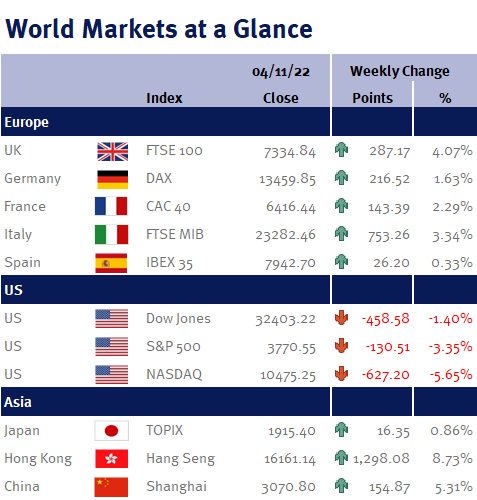The Fed gave mixed signals about the outlook for US interest rates this week.
In the official statement accompanying the widely expected 0.75% increase in US interest rates, it stated that policymakers would “take into account the cumulative tightening of monetary policy [and] the lags with which monetary policy affects economic activity and inflation.”
This to us is a clear indication that the US central bank was planning to slow the pace of its monetary tightening after four large consecutive interest rate increases.
But then came the press conference by the Fed chair, Jay Powell – and he stated that while the future path may have smaller interest rate increases, US interest rates will go higher than previously projected.
US interest rates have now been increased from 0.25% at the start of the year to 4% today (which is a very aggressive increase by any standards, but more so when viewed from the low starting position), and it should be remembered that historically interest rate changes can often take several months or quarters to work their way through to the economy – and as such it is highly unlikely that the full effects of the earlier interest rate increases have been fully felt.


